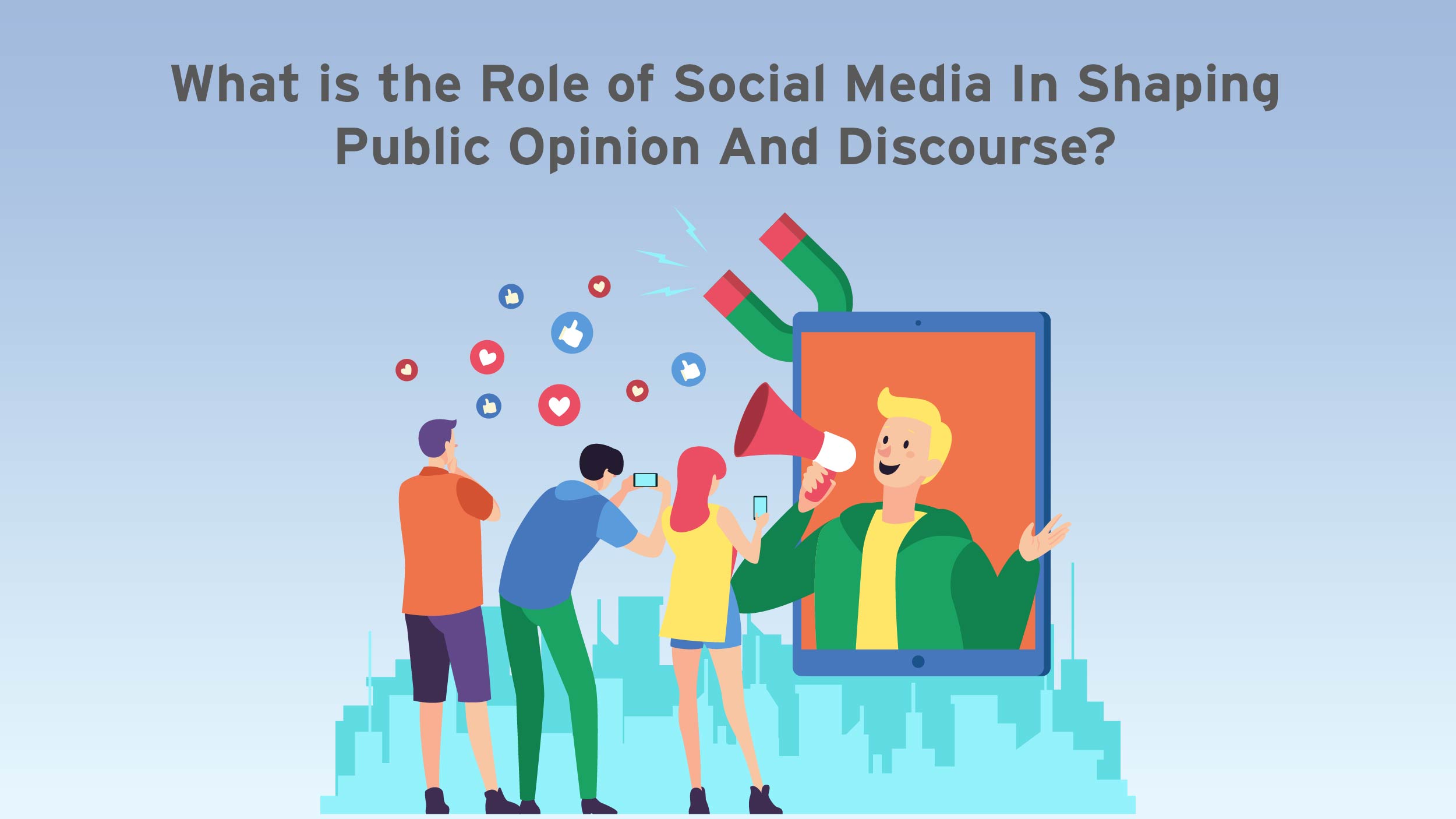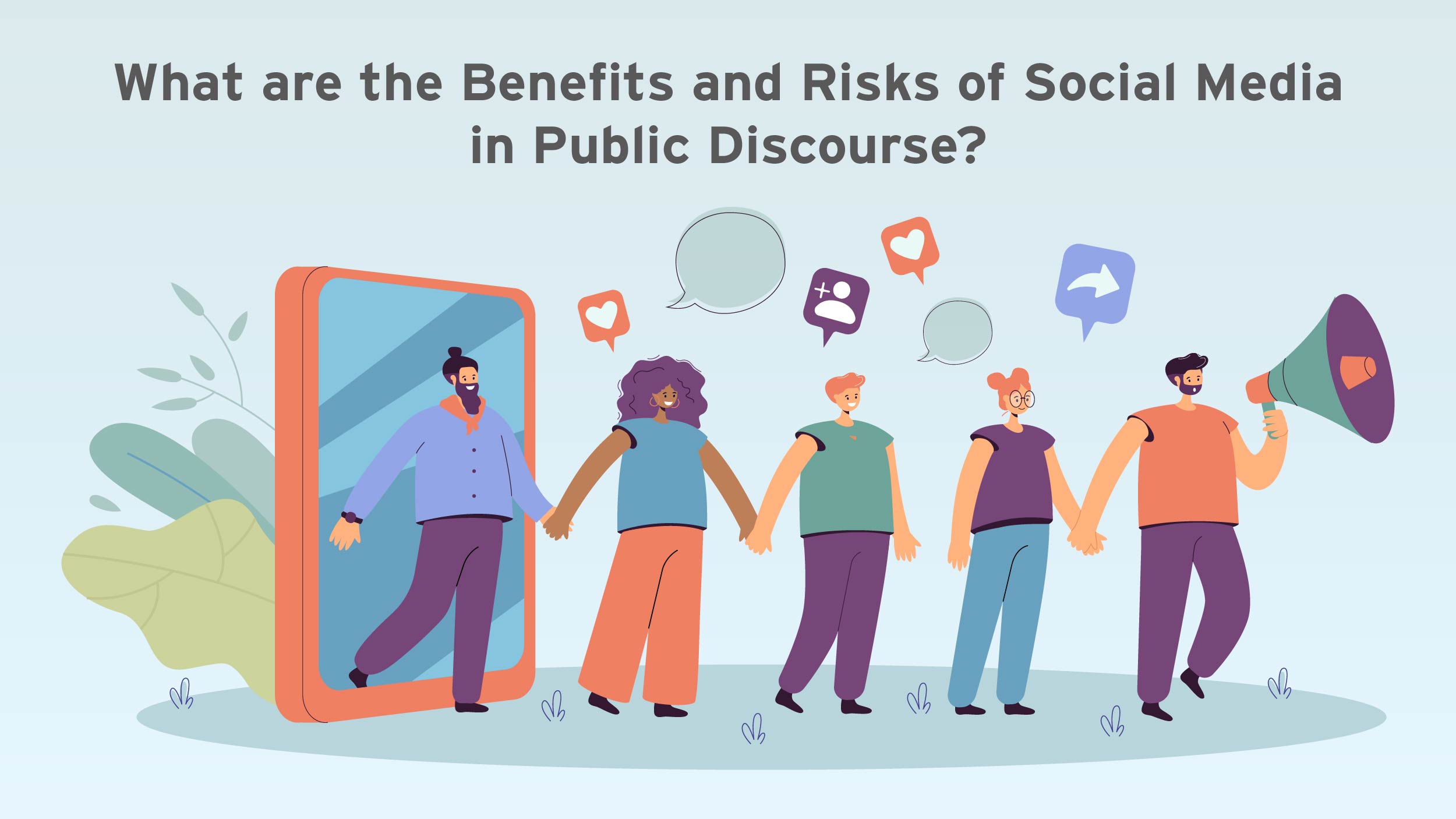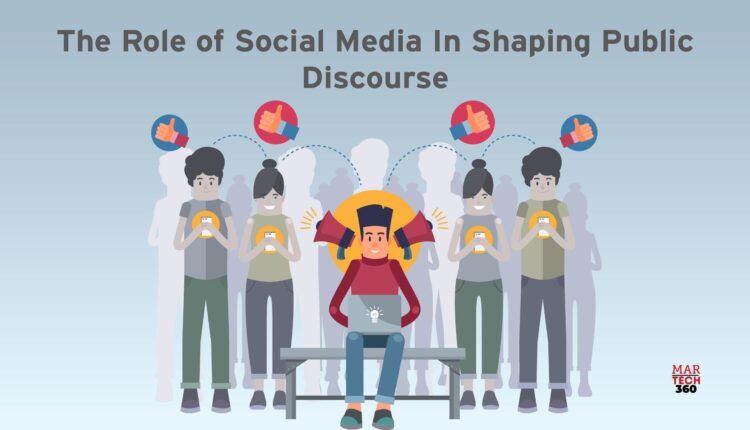Social media is a popular platform for people to share their opinions. With over 5 billion active users globally, the role of social media in shaping public discourse is paramount.
The low cost, high reach, increased accessibility, and availability of smartphones project social media as the best platform for raising the public’s opinion. Furthermore, the presence of various social media tools, forums, and communities like Reddit makes it easier for people to share their thoughts.
Is Social Media the New Generational Platform For Public Opinion?
Social networks are instruments for communicating with and influencing the general population. The public sphere is made up of a gathering of people who engage in discourse on various topics. Numerous venues, such as cafes, public spaces, clubs, etc., can facilitate that.
Social media, however, has emerged as a significant supplement to established platforms, if not a perfect substitute.
According to Hubspot, 90% of consumers initiate purchases from the companies they follow on social media. However, social media’s impact on brand building is now more nuanced than it formerly was. The way that individuals connect with companies on social media has changed as a result of brand saturation, creator communities, and other factors. With a fantastic logo, an original copy, and a beautiful color scheme, you can’t just create a brand. Today’s audiences are seeking something more.
What is the Role of Social Media In Shaping Public Opinion And Discourse?
 The way individuals consume and interact with information has been revolutionized by social media, which has emerged as a potent force in influencing conversation and public opinion. Thanks to the growth of social media sites like Facebook, Twitter, Instagram, and YouTube, people can now share their content, voice their thoughts, and participate in discussions on a worldwide level.
The way individuals consume and interact with information has been revolutionized by social media, which has emerged as a potent force in influencing conversation and public opinion. Thanks to the growth of social media sites like Facebook, Twitter, Instagram, and YouTube, people can now share their content, voice their thoughts, and participate in discussions on a worldwide level.
Following are some examples of how social media affects public opinion:
- Distribution of information: Social media platforms offer a quick and convenient way for news to be shared, enabling people to express their ideas and thoughts to a large audience. 55% of American adults, with Facebook being the most popular platform, get news through social media, according to a 2021 survey by the Pew Research Center.
- Voice amplification: Through social media, marginalized people and groups can raise their voices and take part in public dialogue. It has made it possible for marginalized populations to voice their concerns and push for change through social movements like #MeToo, Black Lives Matter, and climate activism.
- Filter bubbles and echo chambers: On the other hand, social media can also aid in the development of filter bubbles and echo chambers, in which users are predominantly exposed to content that supports their preexisting opinions and values. This could result in polarized public conversation since it might reinforce preexisting beliefs and limit exposure to opposing viewpoints.
- Viral trends and incorrect information: Social media has the ability to quickly disseminate information, both true and wrong. Misinformation and disinformation may spread like wildfire, swaying public opinion and fueling rumors and conspiracies. According to a 2018 study reported in Science, misleading information spreads on social media much more quickly than accurate information.
Also Read: 7 Best Social Media Analytics Tools For Marketers [Paid & Free]
What Regulations Can Be Implemented on Social Media to Stop the Spread of Hate and False Information?
Regulating social media to curb hate speech and misinformation is crucial. Here are key strategies:
- Defining and Enforcing Hate Speech Regulations: Clearly defining what constitutes “hate speech” is essential. Effective enforcement mechanisms and active collaboration between government bodies, civil society, and social media companies are necessary to regulate hate speech and violence.
- Ensuring Data Protection: Social media platforms collect vast amounts of personal data, necessitating robust data protection laws. These laws should ensure informed consent, transparency in data usage, and the right to privacy.
- Combating Misinformation and Disinformation: Misinformation and disinformation hinder informed decision-making and reinforce confirmation bias. Promoting media literacy, supporting fact-checking platforms like Alt News, and holding platform providers accountable are critical steps in addressing this issue.
- Implementing Stringent Legal Mechanisms: New IT rules impose greater obligations on companies regarding the content posted on their platforms. Enforcing these rules stringently can help mitigate the spread of hate speech and misinformation.
- Fostering International Cooperation: Many social media platforms are foreign-based, with data control centers outside the country. Cooperation with foreign governments and big tech companies is essential to combating fake news, hate speech, and disinformation effectively.
- Establishing Grievance Redressal Mechanisms: Courts should take stringent action against rising cases of hate speech, fake news, and violence. Establishing fast-track courts for quick resolution of such cases can significantly improve grievance redressal.
What are the Benefits and Risks of Social Media in Public Discourse?
 Social media has improved public conversation in many ways, but there are also hazards and difficulties that need to be considered. Let’s examine both the advantages and disadvantages:
Social media has improved public conversation in many ways, but there are also hazards and difficulties that need to be considered. Let’s examine both the advantages and disadvantages:
Benefits:
- Greater accessibility: Regardless of one’s background or location, social media platforms offer a level playing field for people to voice their thoughts and participate in public conversation. A wider range of voices may now participate in public discourse due to accessibility improvements.
- Quick information dissemination: Social media makes it possible for news, updates, and information to spread quickly, making it simpler for users to keep current on events and participate in debates. When there is an emergency or a crisis, this quickness can be especially important.
- Involvement and mobilization: Social media platforms enable communities and like-minded individuals to work together for a similar goal. As a result, there has been a rise in activity, civic involvement, and the capacity to plan demonstrations and protests.
Risks:
- Misinformation spread: The quick diffusion of information on social media can result in the spread of incorrect or deceptive content, undermining legitimate sources of information and public dialogue. A Massachusetts Institute of Technology (MIT) study found that false news reports have a 70% higher chance of being retweeted than real ones.
- Digital toxicity and harassment: Social media platforms can serve as a breeding ground for toxic behavior, hate speech, and online harassment. The Pew Research Center found that 41% of Americans (aged between 18-29 years) have experienced some type of online harassment, underscoring the detrimental effects of social media on public dialogue.
- Polarization and echo chambers: As was already established, social media can help create echo chambers and filter bubbles, where people are exposed to information that only confirms their preexisting ideas. This can cause division, prevent fruitful conversations, and make it harder to find common ground.
Bottom Line
The younger generation has come to recognize that social media platforms serve not only as sources of entertainment but also as influential tools in driving social movements and reshaping political ideologies. This acknowledgment has prompted many in positions of authority to acknowledge the considerable impact of social media. As we move forward, it becomes imperative to strike a balance between the freedom of expression and the public welfare while using social media. Additionally, urgent measures are required to rejuvenate social interactions among communities and individuals, fostering the restoration of our societal cohesion and peace.


Comments are closed.